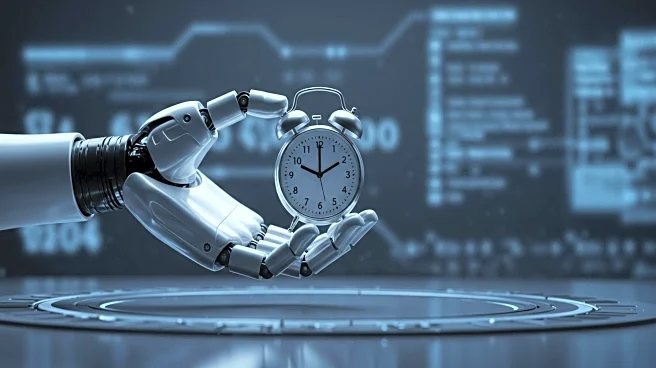What is the story about?
What's Happening?
Jeetu Patel, President of Cisco, has expressed skepticism about the notion that artificial intelligence will lead to the obsolescence of entry-level jobs. Speaking at the Ai4 conference in Las Vegas, Patel countered claims made by Anthropic CEO Dario Amodei, who suggested that AI could significantly increase unemployment and eliminate many white-collar entry-level positions. Patel emphasized the importance of integrating younger workers into the workforce, arguing that their fresh perspectives are crucial for innovation. Despite concerns about AI's impact on job markets, Patel believes that humans will continue to play a vital role in the workplace, particularly in managing and designing AI systems.
Why It's Important?
The debate over AI's impact on employment is significant as it touches on the future of work and economic stability. While AI can automate repetitive tasks, potentially reducing the need for certain jobs, it also necessitates new skills and roles, particularly in tech and management. Patel's stance highlights the importance of balancing technological advancement with workforce development, ensuring that new graduates and entry-level workers are not left behind. This discussion is crucial for policymakers, educators, and industry leaders as they navigate the integration of AI into various sectors, aiming to mitigate potential negative impacts on employment.
What's Next?
As AI continues to evolve, companies and governments may need to focus on retraining and reskilling initiatives to prepare the workforce for new roles created by AI technologies. Patel suggests that the tech community should take responsibility for facilitating this transition, working alongside educators and policymakers to ensure a smooth integration of AI into the economy. The ongoing dialogue between tech leaders and economists will likely influence future strategies for workforce development and AI implementation.
Beyond the Headlines
The ethical implications of AI in the workplace are profound, raising questions about the balance between automation and human employment. As AI systems become more prevalent, companies must consider the long-term societal impacts, including potential disparities in job opportunities and economic inequality. The conversation around AI's role in the workforce also touches on cultural shifts, as traditional career paths may evolve, requiring adaptability and continuous learning from workers.















